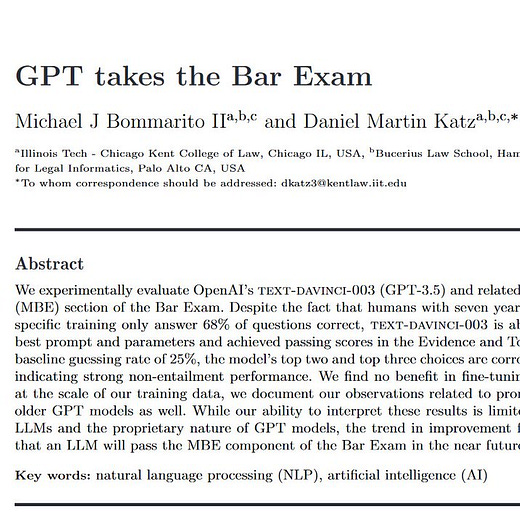SuprA.I.ntelligence
As originally published on Modern Times Opportunities.
One of my favorite stories as a boy was Robbi, Tobbi und das Fliewatüüt, a German book for children published in 1967. It’s my earliest memory coming into contact with what today we’d simply refer to as Artificial Intelligence, or in short “A.I.”:
Most of my formative experiences with AI were good ones — from testing speech recognition software for IBM in the 1990ies to creating the world’s first chat and audio based Conversational IoT interfaces in 2015 with UIB in Singapore.
I started to question my otherwise friendly relationship with AI only after experiencing the overpowering use of algorithms in real life. Once I wanted to upgrade a flight during check-in after a staff recommendation. Despite plenty of space in business and a very helpful (but powerless) human on the other side, the computer simply changed its mind right in the middle of the transaction, even though there was no change in passenger numbers.
The consequences of flying coach vs. business are of course nothing, but whether a flight will be canceled or not has a bigger impact already, which is why I’ve grown more skeptical when data is making decisions that humans have lost control to overrule, a trend on the rise in most aspects of life.
Since ChatGPT’s launch last year, AI has become a mainstream topic. I was lucky to test OpenAI’s GPT-3 during its closed beta and could experience the consequences of AI (re-)writing content, but even if 90% of online content might be generated by AI in 2025, AI’s overall developments are way more profound than its mere generative aspects and continue to evolve more rapidly than anything I have seen over the past three decades.
To get up to speed with the subject of AI:
Meet the ultrarealistic AI robot “Xoxe”
Learn how a generative adversarial network (GAN) works by playing with “This Person does not Exist”
Create images or art simply from a description in natural language using Midjourney or OpenAI’s DALL·E 2
Try Microsoft’s VALL-E AI — with just 3 seconds of audio, it learns how to impersonate your voice
Understand the maturity of “Deep Fakes” and the consequences in terms of security, marketing, branding and authenticity, i.e. by watching this video:
The person in this video is not a real person! She was created by Pantheon Lab but you can see how very natural face, voice, and lipsync now works using AI.
It’s easy to imagine a future where AI characters play a gaming counterpart in the Metaverse or an influencer on social media. In fact, there are already a couple of AI influencers on Tiktok with millions of followers and advertising contracts with luxury brands.
But it’s also quite clear that this technology (especially combined with the above list of written, audible and visual generative AI capabilities) could lead to a near perfect impersonation of any living human being.
Today’s AI Darling
Let’s come back to the darling of today’s mainstream AI discussions — ChatGPT. What are its capabilities and limitations? For a start, ChatGPT can actually pass Medical Licensing, MBA-level Operations and Bar Exams:
This comes at a time when just 50 years back, calculators were not yet allowed in most schools. But if everybody is cheating, why not adopt an open ChatGPT policy?
Is the AI we use today the calculator of yesterday? If so, what’s next after AI? — Toby Ruckert
But not all opinions on ChatGPT are bullish. Meta’s Chief AI Officer for instance considers it 'not particularly innovative,' and 'nothing revolutionary' — of course he may not be perfectly neutral given his position, but I’d agree that it’s more of an evolution than a revolution.
Meanwhile the folks at Andreessen Horowitz (one of the world’s leading technology VCs) raised a simple question: “Who owns the generative AI platform?”
It’s a good point and their analysis is spot on. The only thing it’s missing in my opinion is the key ingredient AI will need in future to continuously evolve and grow, namely: “Contextual APIs”.
To continuously evolve and grow, AI will need the ability to seamlessly plug into Contextual APIs — Toby Ruckert
Contextual APIs — an opportunity to innovate for AI
Without access to (real-time) data and without the ability to perform (actual) actions, AI’s evolution will be limited and ultimately less useful. The moment you ask ChatGPT for your sim card balance or “what a rubber” is (it could be an eraser, a condom, or, refer to an actual rubber plantation business…) — it doesn’t really know what to do.
In any case, without “APIs” to access/act and without pointing it in the right direction in terms of “Context”, this type of conversational generative AI will not grow beyond a certain point. See more examples in this brilliant conversational exchange and detailed analysis of ChatGPT’s “Status Quo”.
AI’s limited advancements also pose an existential crisis for the humanities at large:
“The essay, in particular the undergraduate essay, has been the center of humanistic pedagogy for generations. It is the way we teach children how to research, think, and write. That entire tradition is about to be disrupted from the ground up.” — Stephen Marche in The Atlantic’s article The College Essay Is Dead.
It’s not surprising that new business opportunities emerge, i.e. GPTZero which detects whether content was actually created by humans or generated by machines. It spits out a score determining the likelihood of whether your text with AI generated or not:
Perhaps in future there will be a different value attributed to whether creative content is indeed “human genuine” made or “AI genuine” mixed. There should be fans on both sides. How to determine what’s “genuine” and how to prove it going forward (with an AI that’s continuously evolving) will be a task which is nearly impossible to stay ahead of.
For now, generative AI must rely on using “recycled creativity”, i.e. content previously created by humans. Which doesn’t mean that AI couldn’t be ahead of the game without realizing it and even exhibit “real intelligence”:
Top AI Tools
The whole world is talking about ChatGPT. But many are missing out on these great AI tools, many of which








